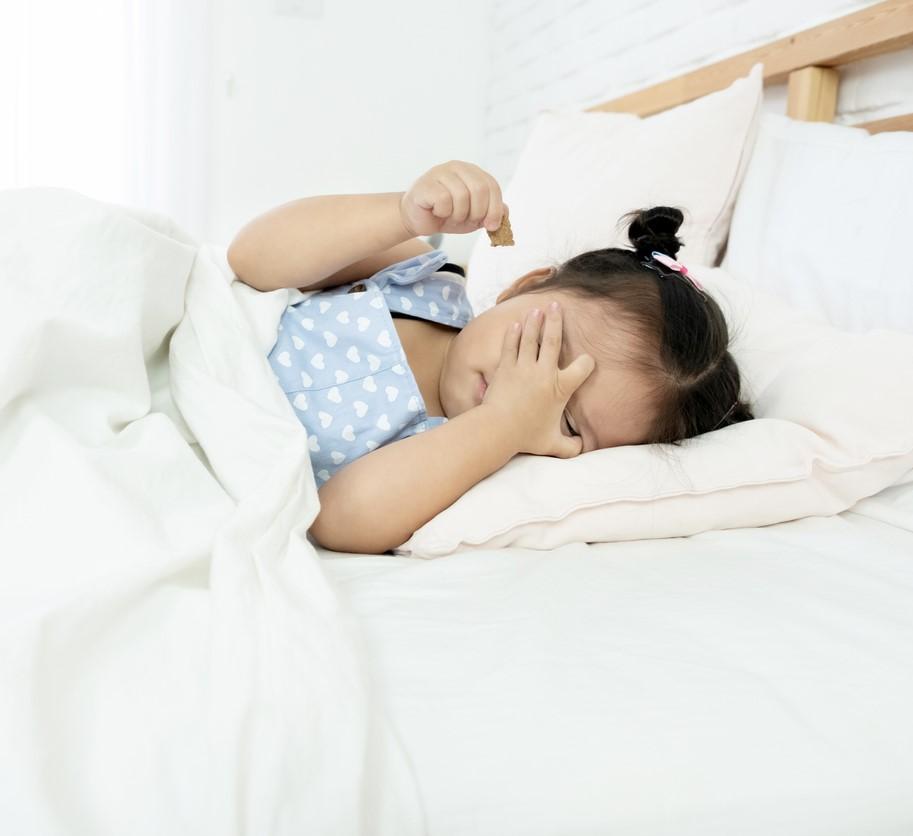A study of children up to age 14 in Denmark finds that those who had been infected by SARS-CoV-2 were more likely to have symptoms at least 2 months later—commonly called "long COVID"—but the risk appears to be only slightly higher than in their uninfected peers.
The study, published in The Lancet Child & Adolescent Health, investigated the duration of long COVID symptoms as well as quality-of-life scores and it involved 10,997 infected children (cases) and 33,016 uninfected controls whose parents or guardians filled out surveys from Jul 20, 2021, to Sep 15, 2021.
One important caveat: Children involved in the study tested positive for COVID-19 largely before the more serious Delta variant—and well before the highly transmissible Omicron variant—had appeared on the scene.
Risk of long COVID: 21% to 78%
For the study, researchers from the University of Copenhagen and the University of Southern Denmark sent surveys to the mothers or guardians of children from 0 to 14 years old who had tested positive for COVID-19 from January 2020 to July 2021.
The surveys asked about the 23 most common symptoms of long COVID in children and used the World Health Organization's definition of long COVID as symptoms lasting more than 2 months.
Cases-patients had higher odds of reporting at least one symptom lasting more than 2 months than did controls in the 0- to 3-year-old age-group (40.0% vs 27.2%; odds ratio [OR], 1.78), 4- to 11-year-old group (38.1% vs 33.7%; OR, 1.23), and 12- to 14-year-old group (46.0% vs 41.3%; OR, 1.21).
The most commonly reported symptoms in children 0 to 3 years old were mood swings, rashes, and stomach aches. Among kids 4 to 11, the most commonly reported symptoms were mood swings, trouble remembering or concentrating, and rashes. And among those 12 to 14 they were fatigue, mood swings, and trouble remembering or concentrating.
Differences in symptom scores based on the CSSI-24 (children's somatic symptom inventory) questionnaire between cases and controls were "statistically significant but not clinically relevant," the authors note. CSSI-24 measures common symptoms in kids, including headache, weakness, vision problems, and various measures of pain.
In general, children with COVID-19 reported fewer psychological and social problems than the other children. In older age-groups, children with COVID often felt less scared, had less trouble sleeping, and felt less worried about the future.
Children with COVID-19 had higher PedsQL quality-of-life scores related to emotional function. Kids 4 to 11 years had a median score of 80.0 compared with 75.0 in the control group, and scores were 90.0 versus 85.0 in the oldest age-group. PedsQL social functioning scores were also higher in cases (100.0) than in controls (95.0) in the 12- to 14-year-old age-group
Some limitations of the study that the authors detail include a long recall period between diagnosis and the survey; relying on parents to report psychological symptoms, which is less accurate and can be biased; and potential selection bias.
Findings considered reassuring
"Our findings align with previous studies of long COVID in adolescents showing that, although the chances of children experiencing long COVID is low, especially compared to control groups, it must be recognised and treated seriously," said first author Selina Kikkenborg Berg, PhD, in a Lancet news release. She and her colleagues published a similar study involving Danish teens 15 to 18 years old in February.
The study authors conclude, "Further research should study post-COVID-19 diagnoses, prescribed drugs, and health-care use to better understand symptom clusters and long-term consequences of COVID-19 and the pandemic in children."
"Research in COVID-19 is like trying to hit a moving target, said Maren Johanne Heilskov Rytter, MD, PhD, of the University of Copenhagen, in a related commentary. She was not involved in the study and said the data may not apply to the current COVID situation.
"The children surveyed were infected with a different strain of SARS-CoV-2 than is currently dominant, and more recent strains appear to cause less severe symptoms. Additionally, since the majority of children in Denmark have immunity from previous infection, they might have milder symptoms if infected with SARS-CoV-2 again, limiting the future generalisability of the findings."
Rytter adds, "Because most symptoms were mild, and the small excess of non-specific symptoms was accompanied by a paradoxical higher quality of life in children who have had COVID-19, the study findings can be considered reassuring.
She concludes, "For most children with non-specific symptoms following COVID-19, the symptoms are more likely to be caused by something other than COVID-19 and, if they are related to COVID-19, they are likely to pass with time."
This study was funded by A.P. Møller and Chastine Mc-Kinney Møller Foundation.





















